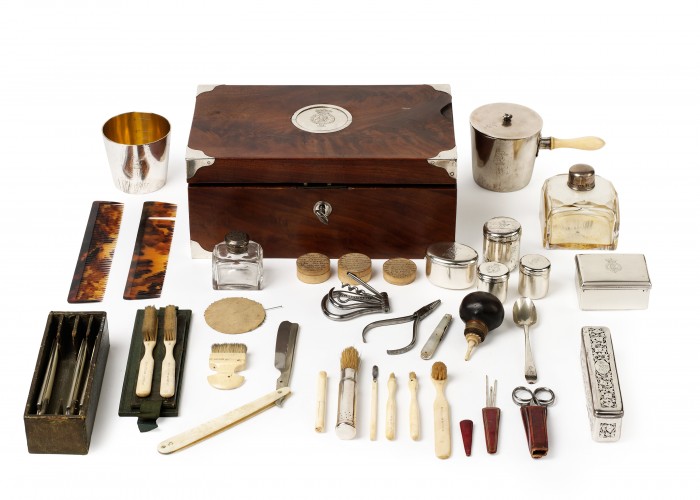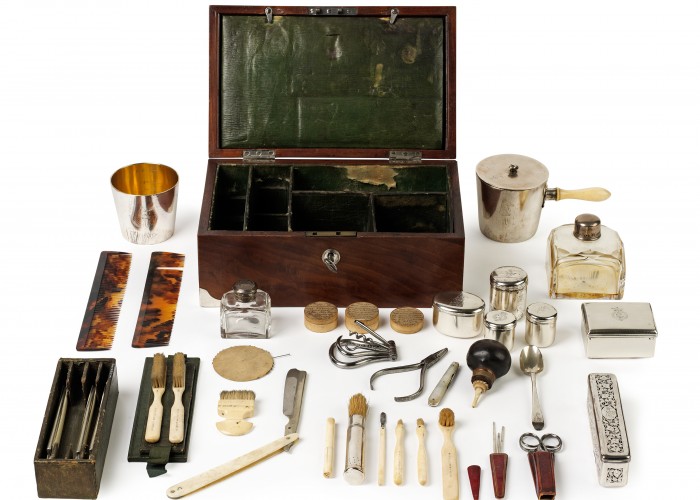Campaign Toilette Case
This is the toilette case of the Duke of Wellington, which he used during the Waterloo campaign. Toilette is a French word meaning grooming and cleaning, and the Duke used these items to keep himself presentable between battles. The Duke of Wellington was extremely careful of his personal appearance, and was nicknamed “the Beau” by some of his soldiers.
This case includes straight razors for shaving, with a badger-hair brush and a silver-gilt vessel for shaving foam. Other items included combs carved from tortoise shells, nail and hair scissors, and tooth, hair and clothes brushes. The silver and glass cases would have held perfumes, powders and oils.
Some of the items also have medical purposes, and cleanliness and careful grooming were associated with good health. The small cardboard boxes contain unidentified pills, with handwritten prescriptions from London pharmacists.
British officers on campaign could live a relatively luxurious life. They could hire mules or donkeys to carry campaign chests, packed with clothing, toiletries, alcohol, crockery and cutlery, and even folding clothing. Private soldiers had to carry all their kit on their backs. Officers could also employ servants to buy or forage food from the local population. In contrast, private soldiers often failed to receive even their humble daily rations: 1 pound each of bread, beef, and pease (beans).
Despite his fastidiousness over appearance, The Duke of Wellington was noted for his severely simple lifestyle while on campaign. He always slept in a folding camp bed, and often ate a simple meal on horseback rather than stopping to dine. A Spanish officer, Don Miguel de Alava, who accompanied Wellington on campaign in the Peninsular and Waterloo, “grew to dread” the Duke’s austere orders to “march at daylight, and dine on cold meat.”
-
Curatorial info
- Production Date: c. 1809
-
Use this image
You can download and use the high resolution image for use in a non-profit environment such as a school or college, but please take note of the license type and rights holder information below
- Rights Holder: Copyright Apsley House / English Heritage. Photography Relic Imaging Ltd.
- License Type: All Rights Reserved
Find it here
This object is in the collection of Apsley House – English Heritage









